Are you planning to buy a property in Singapore? If so, you may be wondering how much housing loan you can get. The amount of loan you can receive depends on a variety of factors, such as your income, credit score, and the value of the property you want to purchase. In this article, we’ll help you understand how much housing loan you can get in Singapore and what factors you need to consider.
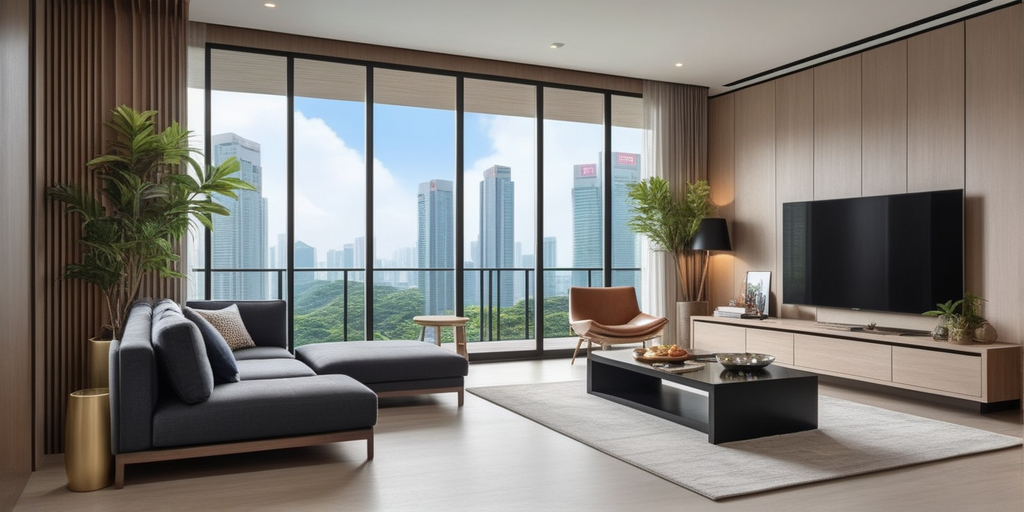
To start, it’s important to understand what a housing loan is and how it works in Singapore. A housing loan is a type of loan that is specifically designed for purchasing a property. In Singapore, you can get a housing loan from either a bank or the Housing and Development Board (HDB). The loan amount is usually a percentage of the property’s value, and you’ll need to pay back the loan with interest over a period of time.
Calculating how much housing loan you can get in Singapore can be a complex process. However, understanding the eligibility criteria, financial considerations, and property types can help you maximise your loan potential. Keep reading to learn more about these factors and how they can impact the amount of housing loan you can get in Singapore.
Key Takeaways
- Eligibility criteria, financial considerations, and property types can impact the amount of housing loan you can get in Singapore.
- Understanding the housing loan application process and available support and resources can help you navigate the process more easily.
- By maximising your loan potential and carefully considering your options, you can find the right housing loan for your needs and purchase the property of your dreams.
Understanding Housing Loans in Singapore
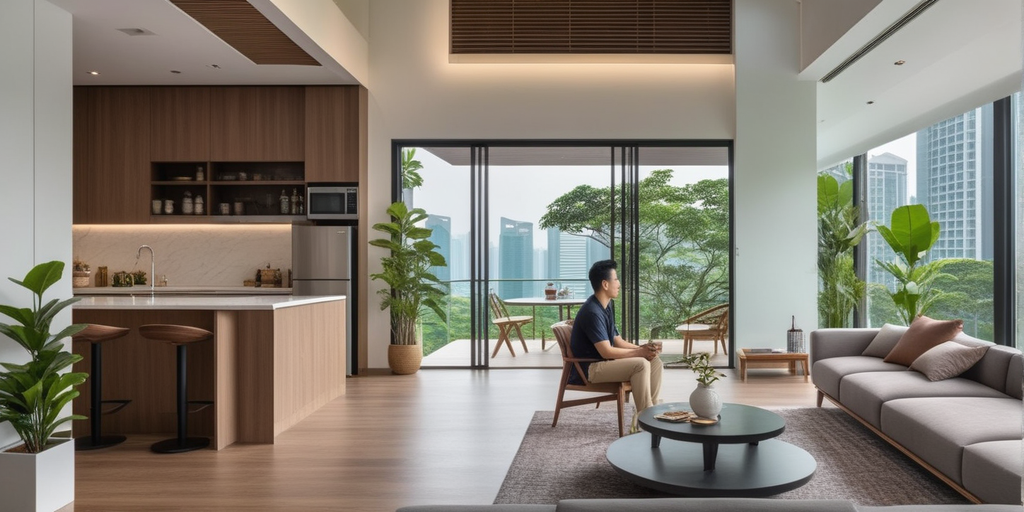
If you’re looking to purchase a property in Singapore, you’re likely to need a housing loan. Here’s what you need to know about housing loans in Singapore.
Types of Housing Loans
There are two types of housing loans in Singapore: HDB loans and bank loans.
HDB loans are offered by the Housing & Development Board to help Singaporeans purchase HDB flats. These loans have a fixed interest rate and a longer loan tenure of up to 25 years.
Bank loans, on the other hand, are offered by financial institutions such as banks and private lenders. These loans have both fixed and variable interest rates and a loan tenure of up to 35 years.
Singapore Housing Loan Regulations
The Singapore government and Monetary Authority of Singapore (MAS) have implemented a number of cooling measures to regulate the property market and prevent a housing bubble. These measures include:
- Loan-to-Value (LTV) limits: The LTV ratio is the amount of the loan compared to the value of the property. The LTV limit for HDB loans is 80%, while the LTV limit for bank loans is 75% for the first property and 45% for subsequent properties.
- Additional Buyer’s Stamp Duty (ABSD): ABSD is a tax imposed on buyers purchasing additional properties. The ABSD rate for Singapore citizens and Permanent Residents (PRs) is 12% for second properties and 15% for third and subsequent properties. Foreigners are required to pay an additional 20% ABSD on top of the existing rates.
- Total Debt Servicing Ratio (TDSR): TDSR is the percentage of your income that goes towards debt repayment. The TDSR limit is 60% for all housing loans, including refinancing loans.
In conclusion, understanding the types of housing loans and Singapore’s housing loan regulations is crucial when purchasing a property in Singapore. It’s important to do your research and compare the different loan options available to you to ensure you get the best deal possible.
Eligibility Criteria for Housing Loans

If you are planning to purchase a house in Singapore, you will need to apply for a housing loan. However, before you apply for a housing loan, you need to meet certain eligibility criteria. Here are some of the eligibility criteria for housing loans in Singapore:
Age and Income Requirements
To be eligible for a housing loan, you must be at least 21 years old. If you are applying for a HDB loan, you must not exceed the age of 65 at the time of the application. If you are applying for a bank loan, you must not exceed the age of 75 at the time of the application. Your gross monthly income must also meet the minimum requirement set by the HDB or the bank. The minimum income requirement varies depending on the type of loan you are applying for.
Credit Score and History
Your credit score and credit history play a crucial role in determining your eligibility for a housing loan. A good credit score and a clean credit history increase your chances of being eligible for a housing loan. If you have a low credit score or a history of defaulting on loans, you may not be eligible for a housing loan.
In summary, to be eligible for a housing loan in Singapore, you need to meet certain age and income requirements, and have a good credit score and credit history. It is important to note that the eligibility criteria for HDB loans and bank loans may differ. Therefore, it is advisable to check the eligibility criteria of the loan you are interested in before applying.
Calculating Your Loan Amount

If you’re planning to take out a housing loan in Singapore, it’s essential to know how much you can borrow. Here are the factors that determine your borrowing limit.
Total Debt Servicing Ratio (TDSR) and Mortgage Servicing Ratio (MSR)
The Total Debt Servicing Ratio (TDSR) and Mortgage Servicing Ratio (MSR) are two measures used by banks and financial institutions to determine your borrowing limit. TDSR is the percentage of your gross monthly income that goes towards paying off all your debts, including credit card bills, car loans, and other loans. The maximum TDSR limit is 60%.
The MSR is the percentage of your gross monthly income that goes towards paying your home loan instalments. The maximum MSR limit is 30% for HDB flats and 35% for private properties.
Loan-To-Value (LTV) Limit
The Loan-To-Value (LTV) Limit is the maximum percentage of the property’s value that you can borrow. The LTV limit is determined by the type of property you are buying and your loan tenure. For HDB flats, the LTV limit is 75%, while for private properties, it is 80%. The LTV limit is subject to change, so it’s best to check with your bank or financial institution.
Mortgage Calculator Usage
Using a mortgage calculator can help you estimate how much you can borrow based on your income, expenses, and other factors. Most banks and financial institutions have their own mortgage calculators, which are free to use. By entering your income, expenses, and other details, you can get an estimate of your borrowing limit.
In conclusion, calculating your loan amount involves considering various factors such as TDSR, MSR, LTV limit, and using a mortgage calculator. By understanding these factors, you can determine how much you can borrow and plan your home purchase accordingly.
Financial Considerations for Home Loans

When considering applying for a housing loan in Singapore, there are various financial factors you need to take into account. These include interest rates, downpayment, fees, and other financial commitments.
Interest Rates and Their Impact
Interest rates are a crucial factor to consider when applying for a housing loan. They determine the amount of interest you will be required to pay on the loan amount. The interest rates can be either fixed or variable, and each has its pros and cons. Fixed interest rates remain constant throughout the loan tenure, providing stability and predictability in your monthly payments. On the other hand, variable interest rates fluctuate based on market conditions, which can lead to either higher or lower monthly payments.
Downpayment and Fees
The downpayment required for a housing loan is a significant financial commitment that you need to consider. It is usually a percentage of the purchase price of the property, and the amount can vary depending on the type of property and the loan amount. Additionally, there are various fees associated with taking out a housing loan, such as legal fees, valuation fees, and processing fees. These fees can add up quickly and significantly increase the overall cost of the loan.
Other Financial Commitments
When applying for a housing loan, it is essential to consider your other financial commitments, such as car loans, personal loans, student loans, and debt obligations. These commitments can impact your monthly debt obligations and, in turn, affect your ability to service your housing loan. It is crucial to ensure that you can comfortably afford your monthly debt obligations and have sufficient income to cover your housing loan repayments.
In conclusion, taking out a housing loan is a significant financial commitment that requires careful consideration of various factors. By understanding the impact of interest rates, downpayment, fees, and other financial commitments, you can make an informed decision about the amount of housing loan you can afford.
Property Types and Loan Options
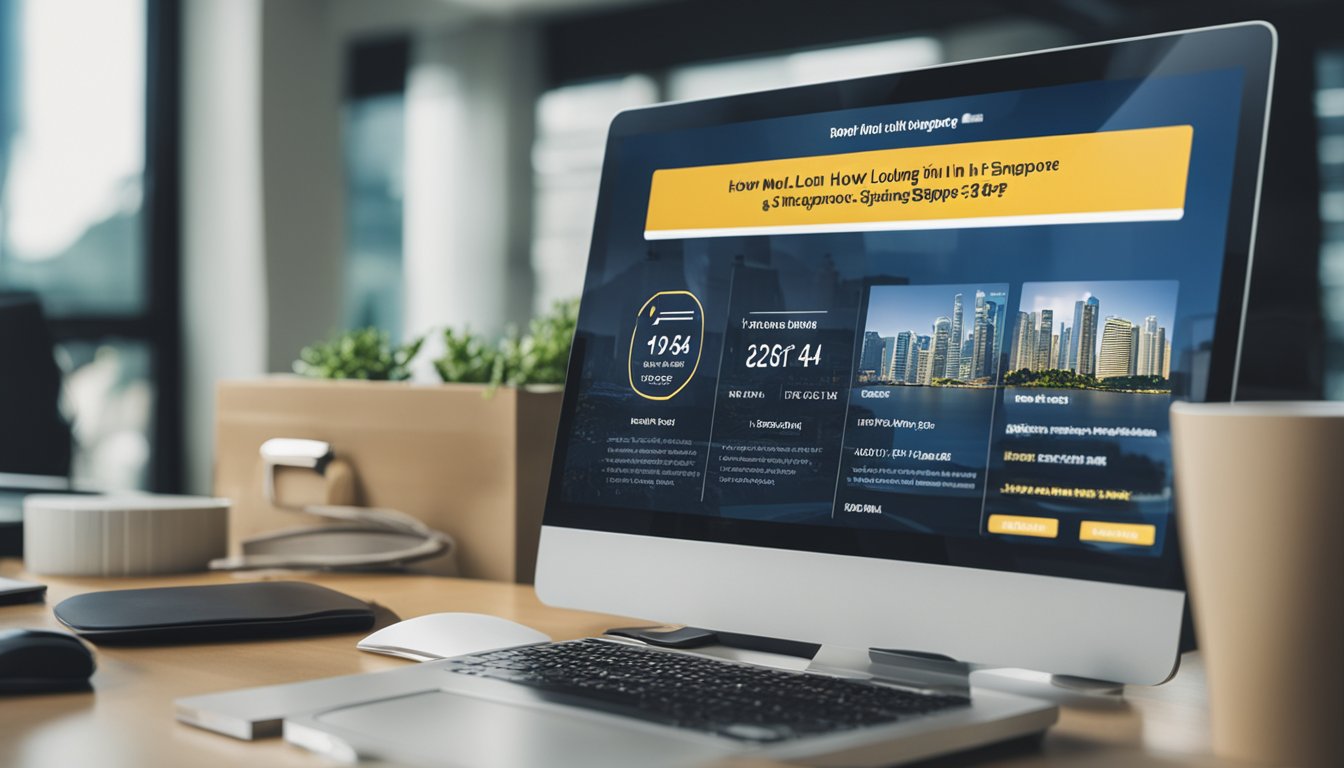
If you’re looking to buy a property in Singapore, you have two main options: HDB flats and private properties. Each property type comes with its own set of loan options.
HDB Flats and HDB Loans
HDB flats are government-subsidized properties that are meant for Singaporean citizens and permanent residents. If you’re eligible to buy an HDB flat, you can apply for an HDB loan, which is also known as an HDB concessionary loan.
The maximum loan amount you can get for an HDB flat is 90% of the flat’s value if you’re taking a loan from HDB. However, if you’re taking a loan from a bank, the maximum loan amount you can get is 75% of the flat’s value.
The interest rate for an HDB loan is fixed at 2.6% per annum. However, if you’re taking a loan from a bank, the interest rate will vary depending on the bank and the loan package you choose.
Private Properties and Bank Loans
Private properties are properties that are not subsidized by the government. If you’re looking to buy a private property, you’ll need to take out a bank loan.
The maximum loan amount you can get for a private property is 75% of the property’s value. The interest rate for a bank loan will vary depending on the bank and the loan package you choose.
When it comes to bank loans, there are two main types: fixed rate loans and floating rate loans. Fixed rate loans have a fixed interest rate for a certain period of time, while floating rate loans have an interest rate that fluctuates based on market conditions.
Before you apply for a home loan, it’s important to do your research and compare the different loan options available to you. Make sure you understand the terms and conditions of each loan package, including the interest rate, loan tenure, and any fees or charges that may apply.
Maximising Your Loan Potential
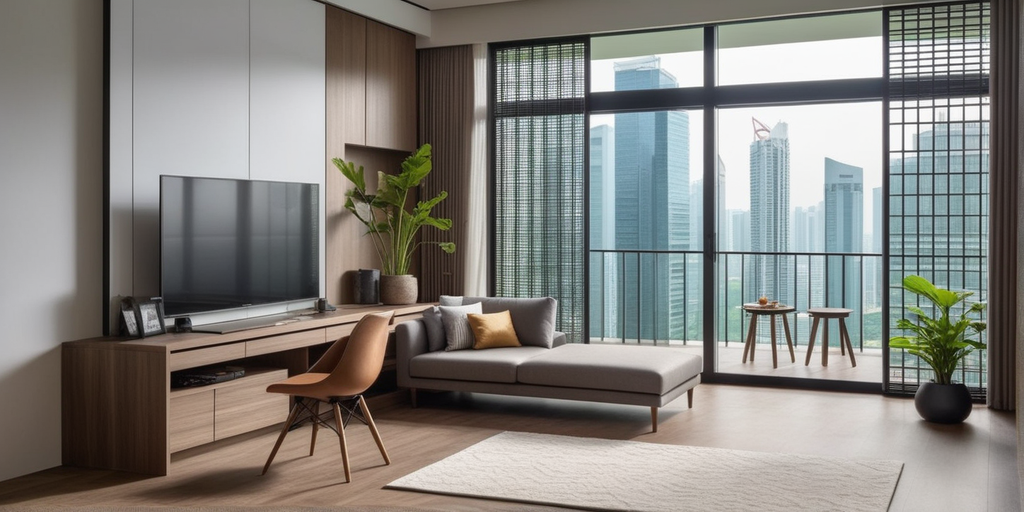
If you’re looking to buy a property in Singapore, you’ll likely need to take out a housing loan. But how much can you actually borrow? And how can you maximise your loan potential? Here are some tips to help you get the most out of your housing loan.
Increasing Loan Tenure
One way to increase your loan potential is to extend your loan tenure. The longer your loan tenure, the lower your monthly repayments will be. However, keep in mind that a longer loan tenure also means you’ll be paying more interest over the long run. So, while extending your loan tenure can help you get approved for a larger loan, it’s important to weigh the pros and cons before making a decision.
Leveraging CPF Ordinary Account
Another way to maximise your loan potential is to leverage your CPF Ordinary Account. Your CPF Ordinary Account is a savings account that you can use to pay for housing-related expenses, including your housing loan. The amount you can borrow from your CPF Ordinary Account is determined by the value of your property and the amount of CPF Ordinary Account savings you have.
By using your CPF Ordinary Account savings, you can increase your loan amount and reduce your monthly repayments. However, keep in mind that using your CPF Ordinary Account savings also means you’ll have less money available for other expenses, such as retirement.
In conclusion, increasing your loan tenure and leveraging your CPF Ordinary Account are two ways to maximise your loan potential in Singapore. However, it’s important to carefully consider the pros and cons of these options before making a decision. By doing so, you can ensure that you’re getting the best possible housing loan for your needs and financial situation.
Home Loan Application Process
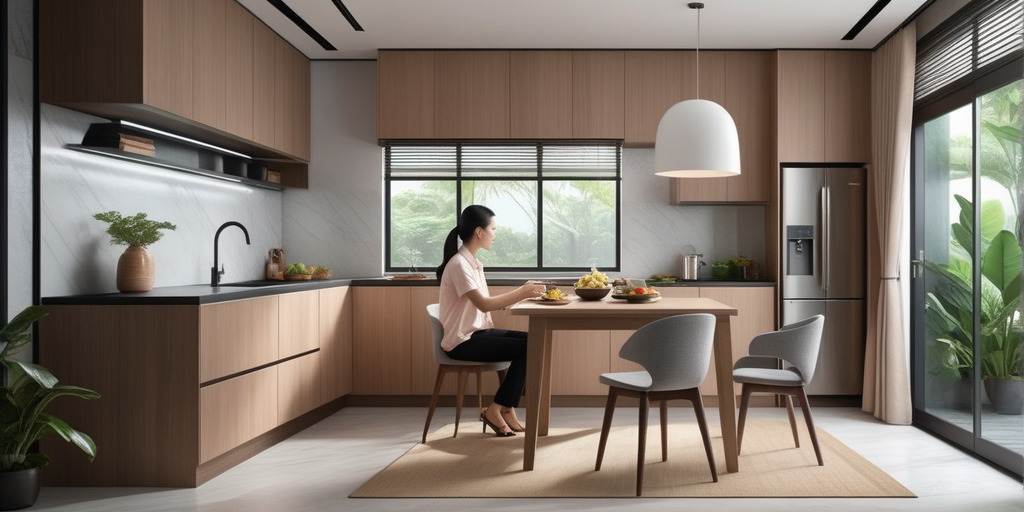
Applying for a home loan in Singapore can be an exciting process. It typically involves gathering the necessary documentation and understanding the procedures involved in securing a mortgage.
Documentation and Procedures
When applying for a home loan, you will need to gather various documents such as proof of income, identification, and details of the property you intend to purchase. The lender will guide you through the required paperwork and procedures, ensuring that you are well-informed throughout the application process.
Comparing Home Loans
Comparing home loans is a crucial step in securing the best mortgage for your needs. You can compare factors such as interest rates, loan tenure, and repayment options offered by different lenders. This allows you to make an informed decision that aligns with your financial goals and aspirations.
Support and Resources

Government Schemes and Assistance
When purchasing a property in Singapore, you can benefit from various government schemes and assistance. These initiatives are designed to support homebuyers, including singles, with financing options and affordable housing choices. The Monetary Authority of Singapore (MAS) and relevant government agencies provide comprehensive information on cooling measures, remaining lease considerations, and cash over valuation (COV) guidelines. By exploring these resources, you can gain a better understanding of the financial support available and the eligibility criteria for different schemes.
Online Tools and Calculators
Utilising online tools and calculators can simplify the process of determining how much housing loan you can secure in Singapore. Home loan calculators offered by financial institutions allow you to estimate your monthly mortgage payments based on the loan amount, interest rate, and tenure. Additionally, you can use these calculators to assess your eligibility for various loan products and understand the impact of different down payment percentages. Moreover, some platforms offer fire insurance premium calculators to help you plan for additional expenses related to property ownership. By leveraging these digital resources, you can make informed decisions and embark on your homebuying journey with confidence.
Frequently Asked Questions
What’s the highest amount I could possibly borrow for a home in Singapore?
The maximum amount you can borrow for a home loan in Singapore depends on several factors, including your income, age, and credit score. Singaporean banks generally offer home loans with a Loan-to-Value (LTV) ratio of up to 75% for private properties and up to 90% for HDB flats. The LTV ratio represents the percentage of the property’s value that you can borrow. However, please note that the LTV ratio is subject to change, and it is always best to check with your bank for the latest information.
Can you tell me the criteria for eligibility for a home loan in this lovely city-state?
To be eligible for a home loan in Singapore, you must be a Singaporean citizen, a Permanent Resident, or a foreigner with a valid work permit. Additionally, you must meet the bank’s minimum income requirements, which vary depending on the bank and the type of property you are purchasing. Furthermore, you must have a good credit score and a low Total Debt Servicing Ratio (TDSR).
What’s the magic number for my mortgage based on my income, according to Singaporean banks?
The amount of mortgage you can get based on your income varies from bank to bank. However, most Singaporean banks use a formula that takes into account your income, age, and the tenure of the loan. Generally, the amount of mortgage you can get is around 3-4 times your annual income. However, it is always best to check with your bank for the latest information.
How do I calculate my Total Debt Servicing Ratio (TDSR) for a property loan in Singapore?
To calculate your TDSR, you need to add up all your monthly debt obligations, including credit card bills, car loans, and other loans. Then, you need to divide this total by your monthly income. The resulting percentage is your TDSR. In Singapore, the maximum TDSR allowed is 60%.
Could you give me a rundown on how OCBC’s home loan calculations work?
OCBC’s home loan calculations take into account several factors, including your income, age, and credit score. They also offer a variety of home loan packages, including fixed-rate and floating-rate packages. Additionally, they offer a range of tools and calculators to help you determine how much you can borrow and how much your monthly payments will be.
What factors do Singaporean banks consider when determining my home loan quantum?
Singaporean banks consider several factors when determining your home loan quantum, including your income, age, credit score, and the type of property you are purchasing. They also take into account the Loan-to-Value (LTV) ratio, which represents the percentage of the property’s value that you can borrow. Additionally, they consider your Total Debt Servicing Ratio (TDSR), which represents the percentage of your income that goes towards debt repayment.

